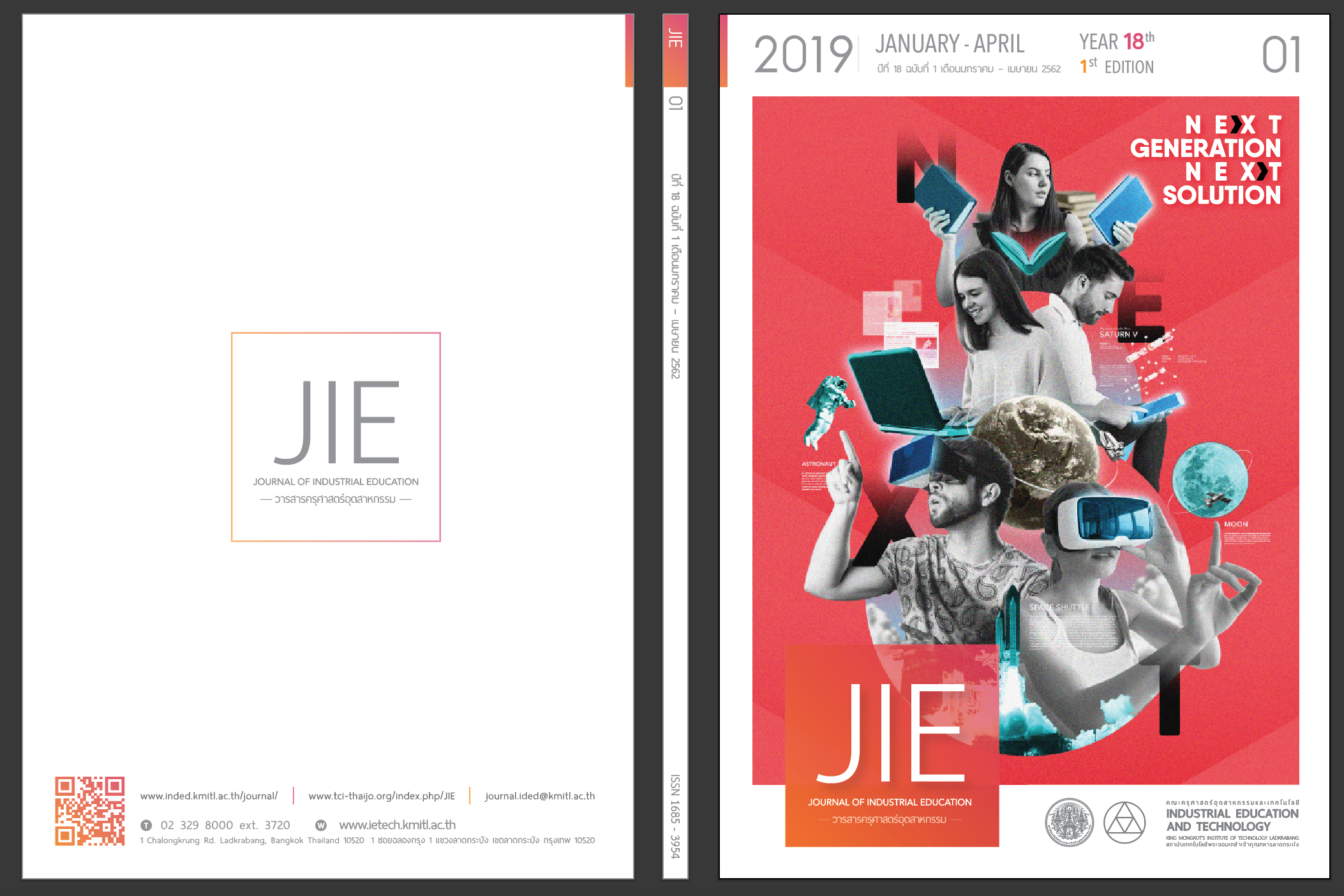THE ARCHITECTURE OF PARTICIPATORY LEARNING SYSTEM WITH VIRTUAL LABORATORY
Keywords:
Participatory learning System, Participatory learning, Virtual laboratoryAbstract
The research aims: 1) to analyse and synthesize the conceptual framework the architecture of participatory instruction system with virtual laboratory, 2) to design the architecture of participatory instruction system with virtual laboratory, 3) to develop the architecture of participatory instruction system with virtual laboratory, and 4) to evaluate the satisfaction on developing the architecture of participatory instruction system with virtual laboratory by 11 experts with experiences in the design of instruction system, content, information technology and communication for education. The instructions of this research were 1) the conceptual framework the architecture of participatory instruction system with virtual laboratory, 2) the architecture of participatory instruction system with virtual laboratory, and 3) the evaluate the satisfaction on developing the architecture of participatory instruction system with virtual laboratory.
The results of the research found that: 1) the developed architecture of participatory instruction system with virtual laboratory consists of 3 parts: (1.1) the composition of the user, (1.2) the composition of the system, and (1.3) the composition of the database system; and 2) the suitability evaluation result on the developed architecture of participatory instruction system with virtual laboratory found that (2.1) the suitability of the overall composition on the architecture of participatory instruction system with virtual laboratory is at the highest level ( = 4.73, S.D.= 0.44), (2.2) for the suitability of classified composition, the composition of the user was at the highest suitability level (
= 4.56, S.D.= 0.50), the composition of the system was also at the highest suitability level (
= 4.79, S.D.= 0.42), and the composition of the database system was at the highest suitability level (
= 4.79, S.D.= 0.43); and (2.3) the suitability on the implementation of the architecture of participatory instruction system with virtual laboratory was at the highest level (
= 4.80, S.D.= 0.42).
References
Ministry of Education. 1999. National Education Act B.E. 2542. Bangkok: Prigwhan Graphic Co., Ltd.
Chatwattana, P. 2018. The Concept of Creative Innovation Skills for Enhancement of Thailand 4.0. Journal of Industrial Education, 17(3), p. 222-229.
Christy P. C. & Meulen R. 2009. Gartner Says Cloud Computing Will Be as Influential As E-business. Gartner.com. [online]. Retrieved August 22, 2018 from: https://www.gartner.com/it/page.jsp?id=707508
Songkram, N. 2010. Multimedia for learning: Design & Development. Bangkok: Chulalongkorn University Press.
Thinhanwong, S. 2015. Participatory Learning: From Theory to Practice in Children’s Literature Course. Journal of Humanities & Social Sciences Review Phetchaburi Rajabhat University, 17(1), p. 2-11.
Slavin, R. 1986. Using students team learning. Center for Research on Elementary and Middle School. John Hopkins University.
Khemmani, T. 2010. Science of Teaching: Knowledge of Efficient Learning Process Management. Edition 13. Bangkok: Chulalongkorn University Press.
Robert, M. R., Alan, D. & Barbara H. W., 2013. System Analysis and Design (5th ed). Hoboken: John Wiley & Sons, Inc.
Kanasutra, P. 1995. Statistics for Research in the Behavioral Sciences. Bangkok: Chulalongkorn University Press.
Chatwattana, P. 2017. The Effect of Web-based Learning System using Project-based Learning of Imagineering to Enhance Creative Construction of Multimedia Skills and Cooperative Skills. Journal of Industrial Education, 16(1), p. 192-201.
Ruengrairatanaroje, P. 2007. The Learning Achievement of Virtual Laboratory in Physics Laboratory Subject via Internet System. STOU Education Journal Sukhothai Thammathirat Open University, 6(2), p. 84-92.
Klentien, U. & Wannasawadee, W. 2017. The Synthesis of Virtual Science Laboratory and Blended Learning for Developing Analytic Thinking Skill. Journal of graduate studies Valaya Alongkorn Rajabhat University, 11, p. 147-162.
Tuncharoen, P., Chauvatcharin, N., Singlop, S. & Siriswat, C. 2018. The Learning Achievement by using STAD Cooperative Learning Techniques to Promote Learning Achievement and Attitude on Science for Developing Life Skill in the Topic “Ecosystems” of Diploma Level Students. Journal of Industrial Education, 17(2), p. 188-196.
Paopoon, M., Piasai, K., Penpean, C., Hajisalah, S. & Janjaroon, A. 2018. A Study of Reasoning Abilities on Sequence by using Learning Management Connecting with Real World Situations and Cooperative Learning for Mathayomsuksa IV Students. Journal of Industrial Education, 17(2), p. 83-92.
Downloads
Published
How to Cite
Issue
Section
License
"The opinions and contents including the words in papers are responsibility by the authors."
"ข้อคิดเห็น เนื้อหา รวมทั้งการใช้ภาษาในบทความถือเป็นความรับผิดชอบของผู้เขียน"



